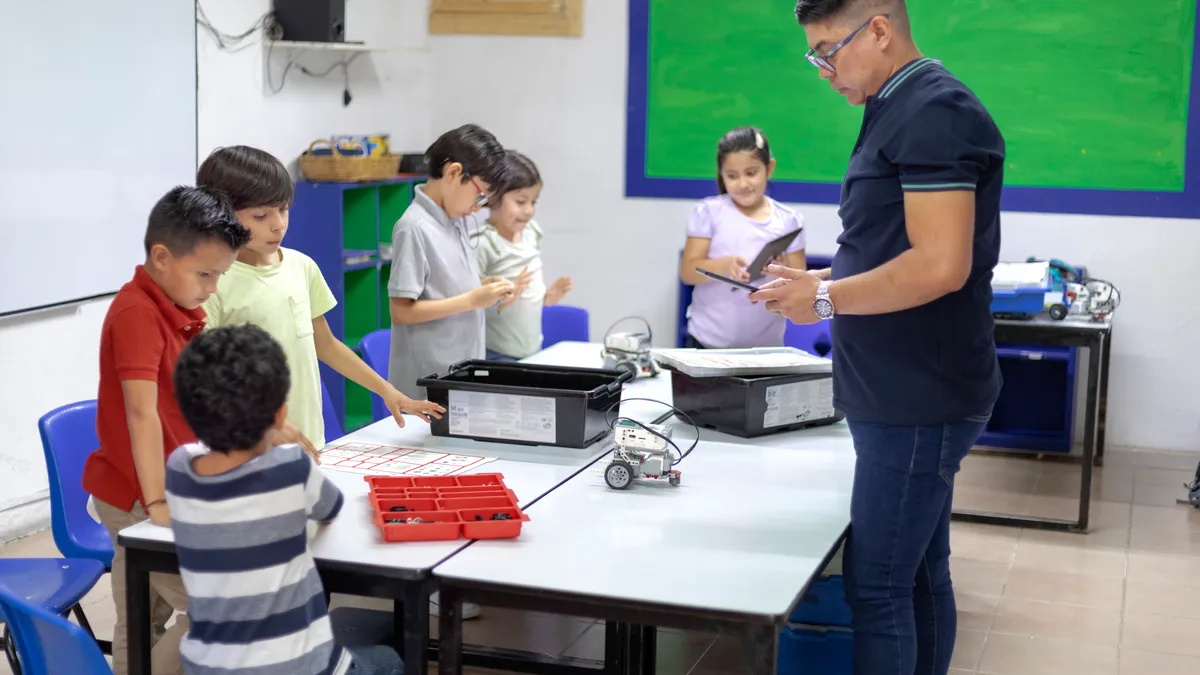Dive Brief:
- A majority — 85% — of K-12 public schools are offering after-school programs for students in the 2024-25 school year. But the percentage of schools whose programs have an academic focus is lower, and the share has declined from the previous year.
- Some 60% of K-12 after-school programs in 2024-25 include academic offerings, compared to 64% of programs in 2023-24, according to data released Thursday by the National Center for Education Statistics.
- The top reasons school leaders gave NCES for not providing an academically focused after-school program this year include a lack or reduction in funding (37%), struggles to find enough after-school staff (30%), a lack of student participation (24%) and transportation barriers (24%).
Dive Insight:
Limited resources and staffing challenges are hindering school leaders’ abilities to offer academic programming after school, said NCES Commissioner Peggy Carr in a statement. "These findings, together with our recent data on teacher and staff hiring difficulties, underscore the key staffing needs that impact schools’ efforts to help students regain the academic ground lost during the pandemic,” Carr said.
In October, NCES found that 74% of public schools had trouble filling one or more vacant teaching positions ahead of the 2024-25 school year. That was slightly better than the two previous years,however, at 79% in 2023-24 and 80% in 2022-23.
Overall, 13% of all K-12 students are expected to enroll in after-school programs with an academic focus, according to school leaders’ estimates from the NCES School Pulse Panel data. In September, NCES surveyed 1,505 K-12 schools in all 50 states and Washington, D.C., for the School Pulse Panel.
With schools’ obligation deadline to spend federal pandemic relief funds ending this fall, it was expected that after-school programs nationwide would have to scale down in both size and services.
The latest NCES data found that 59% of public schools said they used local district dollars to fund their academically centered after-school programs. Some 47% tapped into federal grants or programs, 29% used state grants or programs, and 13% relied on partnerships or sponsorships with organizations.
A majority of schools — 83% —- offered summer school programs in 2024, and 80% of public schools had an academic focus in their summer programs, NCES said. A quarter of school leaders whose summer programs lacked academic offerings cited a lack of or reduction in funding for hiring staff to support such initiatives.













